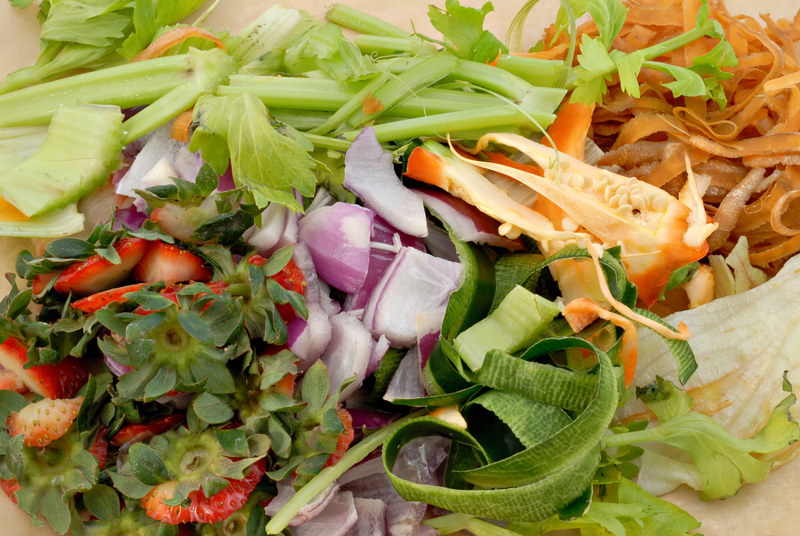Advanced Tips for Mastering Home Recycling
Recycling at home is no longer just about separating your plastics from your paper. As concerns about climate change and sustainability grow, mastering home recycling is becoming an essential part of responsible living. By moving beyond the basics and embracing advanced techniques, you can significantly reduce your environmental footprint and set an example for your community. In this comprehensive guide, we'll delve into advanced strategies for optimizing your home recycling system, debunk common myths, and inspire you to become a true recycling master.

Understanding Modern Home Recycling Challenges
With recycling programs and regulations varying from city to city, many households face confusion regarding what can be recycled and how. Additionally, contamination - when non-recyclable or dirty items end up in recycling bins - can undermine the recycling process. To master home recycling, it's crucial to understand these challenges and adapt your recycling habits accordingly.
1. Research Your Local Recycling Rules
One of the most important advanced recycling tips is to get familiar with your local recycling guidelines. Many municipalities have differences in what materials are accepted and how they should be prepared. Make sure to:
- Check your city or county's official recycling website for updated lists of acceptable materials.
- Download recycling apps or print guides to keep handy by your bins.
- Note any special collection days for electronics, hazardous waste, or bulky items.
2. Rinse and Clean Recyclables Thoroughly
A common mistake in home recycling is tossing dirty containers into the bin. Residue from food, drinks, or other substances can contaminate entire loads of recycling, sending them to landfill instead. Always:
- Rinse cans, bottles, and jars to remove food particles and liquids.
- Let items dry before placing them in the bin to avoid mold growth.
- Consider removing paper labels if requested by your local recycler.
Next-Level Sorting for Effective Home Recycling
While basic recycling sorts materials into "glass, plastic, and paper," advanced home recyclers implement more precise sorting habits. This can make a big difference in the quality of recycled materials and their value in the circular economy.
3. Separate Plastics by Resin Code
Not all plastics are created equal. Look for the recycling symbol on the bottom of containers, which includes a number (1-7) known as the resin identification code. Many programs only accept certain codes, such as #1 (PET) and #2 (HDPE). Tips for mastering plastic recycling at home include:
- Sort plastics by number if your program allows or requires it.
- Keep film plastics (grocery bags, wrappers) out of curbside bins and take them to designated drop-off points.
- Flatten bottles and containers to save space in your bins.
4. Flatten, Bundle, or Tie Recyclables Appropriately
Recycling doesn't stop at the bin--proper preparation can improve efficiency at the recycling center:
- Flatten cardboard boxes to maximize space.
- Bundle paper and cardboard if required, using twine rather than plastic tape, which can interfere with processing.
- Never bag recyclables in plastic bags unless your program specifically instructs you to do so.
Going Beyond the Bin: Upcycling and Repurposing
Advanced home recycling isn't just about putting the right items in the right bins--it's about redefining waste. Upcycling and creative repurposing can significantly reduce the amount of materials you send to the curb.
5. Get Creative with Upcycling Projects
Before tossing an item in the recycling bin, consider whether it could be given a new life. Examples include:
- Turning glass jars into storage containers or candle holders.
- Transforming old t-shirts into cleaning rags or tote bags.
- Using egg cartons for seed starters or craft projects.
6. Repair and Donate Before Recycling
Repairing or donating items extends their lifespan and reduces demand for new resources. Try:
- Fixing electronics or appliances at local repair cafes.
- Donating gently used clothing, shoes, and household items to charities.
- Offering furniture, bikes, or toys on local swap and share groups.
Composting as an Advanced Recycling Technique
Composting is a natural home recycling solution for organic waste like food scraps and yard trimmings. Not only does this reduce landfill waste, but it also produces nutrient-rich compost for your garden.
7. Learn the Basics of Home Composting
Building a successful compost system involves balancing "greens" (nitrogen-rich materials) and "browns" (carbon-rich materials), as well as maintaining moisture and aeration.
- Compost fruit and vegetable scraps, coffee grounds, eggshells, and yard waste.
- Avoid composting meat, dairy, and oily foods at home due to smell and pest issues.
- Turn the pile regularly to promote aeration and faster decomposition.
8. Explore Vermicomposting for Small Spaces
If outdoor composting isn't practical, worm bins, or vermicomposting systems, allow you to recycle food waste indoors. Red wiggler worms convert food scraps into rich fertilizer with minimal odor.
Advanced Recycling for Non-Traditional Materials
Many items don't belong in traditional curbside bins but can still be diverted from landfill through specialty recycling programs. Master the art of advanced home recycling by learning about these options.
9. Recycle Electronics and E-Waste Responsibly
Old cell phones, laptops, and batteries contain valuable materials that can be reused, as well as toxins that must be handled carefully.
- Drop off e-waste at certified recycling events or electronics retailers.
- Erase all personal data before recycling devices.
- Do not put electronics in your regular curbside bin.
10. Participate in Hard-to-Recycle Programs
Some companies and municipalities collect items like:
- Plastic film and bags
- Batteries and light bulbs
- Paint, motor oil, and hazardous chemicals
- Textiles and carpets
Research local collection points, such as libraries, grocery stores, or hazardous waste facilities.
Reducing Waste at the Source: The Ultimate Recycling Strategy
The best form of recycling is preventing waste in the first place. Advanced home recyclers proactively choose sustainable products and packaging. Consider these strategies:
11. Choose Reusables Over Disposables
- Switch to reusable shopping bags, produce bags, and water bottles.
- Opt for cloth napkins and towels rather than paper products.
- Select durable, long-lasting items when shopping.
12. Buy in Bulk and Avoid Over-Packaged Goods
- Shop from bulk bins for grains, nuts, and snacks using your own containers.
- Avoid individually wrapped or single-serve items when possible.
- Seek products with minimal or compostable packaging.
Educating Your Household for Recycling Success
A truly effective home recycling system depends on everyone who lives or visits your home. Education and clear communication are essential for avoiding mistakes and maximizing impact.
13. Set Up a User-Friendly Recycling Station
- Use clearly labeled, color-coded bins in high-traffic areas.
- Include visual guides showing what does and does not belong in each bin.
- Empty and clean bins regularly to avoid pest issues and odors.
14. Teach Kids and Guests the Importance of Recycling
- Encourage children to take part in sorting and upcycling activities.
- Set recycling goals or challenges for your household.
- Discuss the environmental benefits of recycling to inspire positive habits.
Debunking Common Recycling Myths
Even advanced recyclers may fall for persistent recycling myths. Let's set the record straight:
-
Myth: "Everything with a recycling symbol is accepted in curbside programs."
Fact: Not all types of plastics or packaging are recyclable locally, even if marked with the triangular symbol. -
Myth: "If in doubt, recycle it."
Fact: Wish-cycling (tossing questionable items in the recycling bin and hoping for the best) actually hurts the recycling process. -
Myth: "Recycling doesn't make much difference."
Fact: When carried out properly, home recycling saves energy, conserves resources, and reduces greenhouse gas emissions.
Leveraging Technology for Masterful Home Recycling
Embrace the power of technology by using apps, smart bins, and other digital resources to stay up-to-date and improve your advanced home recycling techniques.
15. Use Recycling Apps and Online Tools
- Find answers to recycling questions instantly using tools like Recycle Coach or your local government's app.
- Set reminders for collection days and special recycling events.
- Research product and packaging recyclability before you buy.
16. Try Smart Recycling Bins
- Use smart bins that weigh recyclable materials and send reports to your phone.
- High-tech options can also scan barcodes to confirm recyclability.

Measure Your Progress and Celebrate Successes
Regularly evaluate your household's recycling habits and look for ways to further reduce waste. Consider:
- Tracking how much waste you divert from landfill each month.
- Setting goals for reducing single-use plastics or increasing compost output.
- Rewarding your family or roommates for consistently great recycling habits.
Conclusion: Become a Home Recycling Expert
Mastering home recycling is a journey, not a destination. By embracing advanced strategies, staying informed, and encouraging others, you can make a truly positive impact on your household and community. From precise sorting and creative upcycling to embracing technology and educating your household, each step brings you closer to becoming a true recycling innovator. Start integrating these advanced home recycling tips today and help build a cleaner, greener future for all.
Looking for more recycling ideas? Stay tuned to our blog for the latest tips, eco-friendly product reviews, and community recycling initiatives!